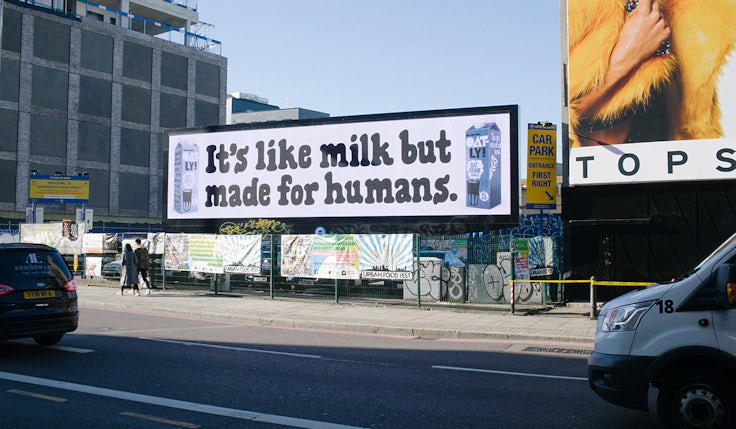‘Get comfortable with discomfort’: How marketers can make the most of their budgets
Being able to justify each pound spent is a healthy mindset to have in any marketing business, say senior marketers from Diageo, CALM, AMS and Salesforce.
 The instinct for many businesses during a tough macroeconomic environment is likely caution; however, for marketing teams, curiosity and a culture of experimentation is one way for brands to make the most of their budgets, say four senior marketers.
The instinct for many businesses during a tough macroeconomic environment is likely caution; however, for marketing teams, curiosity and a culture of experimentation is one way for brands to make the most of their budgets, say four senior marketers.
The best work and most effective marketing comes when teams are allowed to feel safe to try new things, said Diageo’s chief digital officer Susan Jones. She was speaking during the fifth Currency of Effectiveness session held by Marketing Week’s Festival of Marketing yesterday (28 March), sponsored by Salesforce.
“Find a way to be comfortable with discomfort and to make your team comfortable with discomfort,” advised Jones.
Campaign Against Living Miserably (CALM) CMO Matt Jennings echoed Jones’ sentiments about the importance of curiosity and experimentation.
Being able to take risk is really important, he said; however, this must be measured risk so teams can learn from experiments.
“Even if we fail, there’s value in failure,” he said.
CALM has an in-house creative studio, which Jennings says supports this test-and-learn model. In-housing gives the charity increased flexibility and the ability to “go after any opportunity as it arises”, he said.
He has also found in-house models helpful in building “a test and learn approach that can create insights you need to then make a case for investment into a certain area”.
Talent solutions firm AMS’s managing director of marketing and sales development, Mary Anne Russell, encourages curiosity in her team around data and newer tools like AI.
Salesforce product marketing director Jonathan Beeston advised marketers to use AI to help get the most out of their budgets by identifying the insights among the data.
“What we’re talking to a lot of customers about now is how do you take that data… and connect it, harmonise it, and put it together so you have that single view of what the customer has done and is doing”, he said.
Data is key
For Diageo, its analytics tools Catalyst and Sensor are key to getting the most out of its budget.
Catalyst is a tool which helps the company understand how best to allocate its funds between brands and markets. Sensor examines the business’s media buys and allows it to shift “on the fly” to optimise its budget.
Jones acknowledged marketers at smaller businesses may not have access to a suite of analytics tools as sophisticated as those in place at Diageo, but advised them to be curious about the data.
Inside Diageo’s ‘living and breathing’ marketing effectiveness culture
Use data to understand the reasons why something did or didn’t work, she advised.
“Lean into the possibilities of the data,” she said.
At B2B talent solutions business AMS, creating a marketing-generated lead can take anything from 15 to 300 days, Russell said. This means data is absolutely crucial in the business to demonstrate to stakeholders like the CFO that the team is making the most out of its marketing budget and shifting the dial.
As well as long leads, the nature of the B2B business means the contracts customer sign are often “pretty heavy”. During a challenging economic time, Russell notes her team are set up to be adaptable and “pivot” away from slower-burn marketing-generated leads towards products which are “less hefty to take onboard” for customers.
The idea of getting “more with less” is a useful way to think about marketing budgets, Russell noted.
“I think it’s a healthy way of thinking about how you can sweat what you currently have in the budget,” she said.
Jones concurred, adding the “spirit of interrogating every dollar” was a good one for every business to have.
“But I think there is a danger in believing that you can underinvest in a brand and that it’s going to be okay,” she warned.
For CALM, agency and media partnerships are a key way it sets about getting “more for less”.
“We definitely don’t have the media budgets to spend in the way that you might expect given the reach and scale of some of the campaigns that we’ve developed,” Jennings said.
“That’s where we’re very lucky to have partners that will get behind the work that we do, and actually support the campaigns and give us that reach and awareness that we need to create.”
For Beeston, in tough economic times, marketers must look across their business.
“Marketers in this environment have got to be wise about thinking not just about the immediate impact of what they do, but that whole customer experience across the business,” he said, giving the example of working to reduce incoming calls to a call centre in order to save the business money.
All sessions in the Currency of Effectiveness series are now available to watch on demand.
The Currency of Effectiveness is brought to you in partnership with System 1, Ebiquity, Salesforce, Digitas, Ceros, Ozone, and Little Dot Studios.







